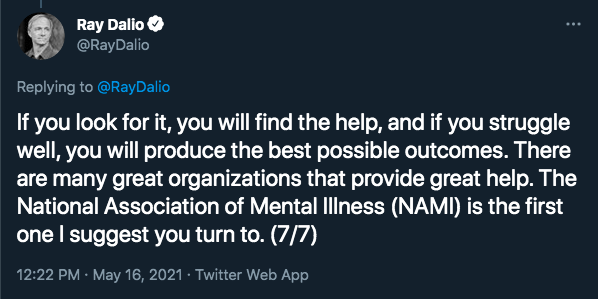
Oh hey, I know one of the sources of this narrative. For about thirty years Kay Redfield Jamison has been one of the biggest proponents of a relationship between artistic genius and manic-depression.
https://twitter.com/caitoz/status/1395550379023101953
Kay Jamison coauthored the standard text for manic-depression with Frederick Goodwin in 1990, and in 1993 she wrote Touched with Fire, where she argues many famous artists had the illness. In '95 she came out herself as a sufferer in An Unquiet Mind.
She's been on NPR and Charlie Rose multiple times, and most of the prominent American celebrities and 'mental health advocates' I've come across who talk about their bipolar diagnosis point to her books as an influence.
I've been looking into Jamison because John Hinckley Sr.'s AMHF was one of the cosponsors of a 1988 concert she organized. The event was dedicated to a purported link between manic-depressive illness and musical creativity.
https://twitter.com/mbneedham/status/1378534593209458690
The PBS program filmed from the concert was actually the first of two. In 1990 Jamison produced a second program dedicated to Vincent Van Gogh, retroactively diagnosing him with manic-depressive illness. The same organizations cosponsored, including AMHF.
libgallery.cshl.edu/items/show/410…
libgallery.cshl.edu/items/show/410…
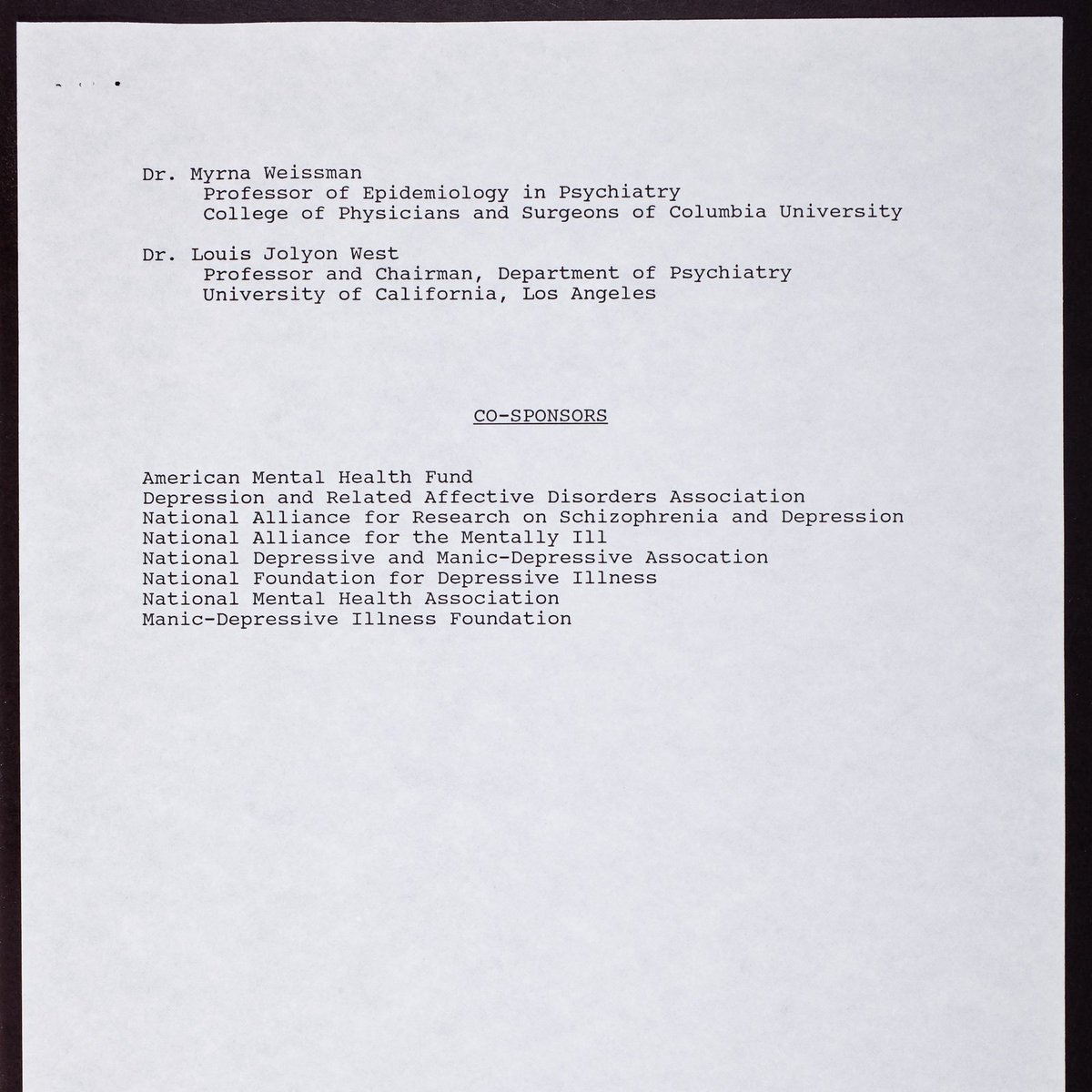
There was also a third program planned, "Taint of Blood: Lord Byron & the Genetics of Genius", which was to focus on the Romantics and the genetics of mental illness.
libgallery.cshl.edu/items/show/409…
libgallery.cshl.edu/items/show/409…
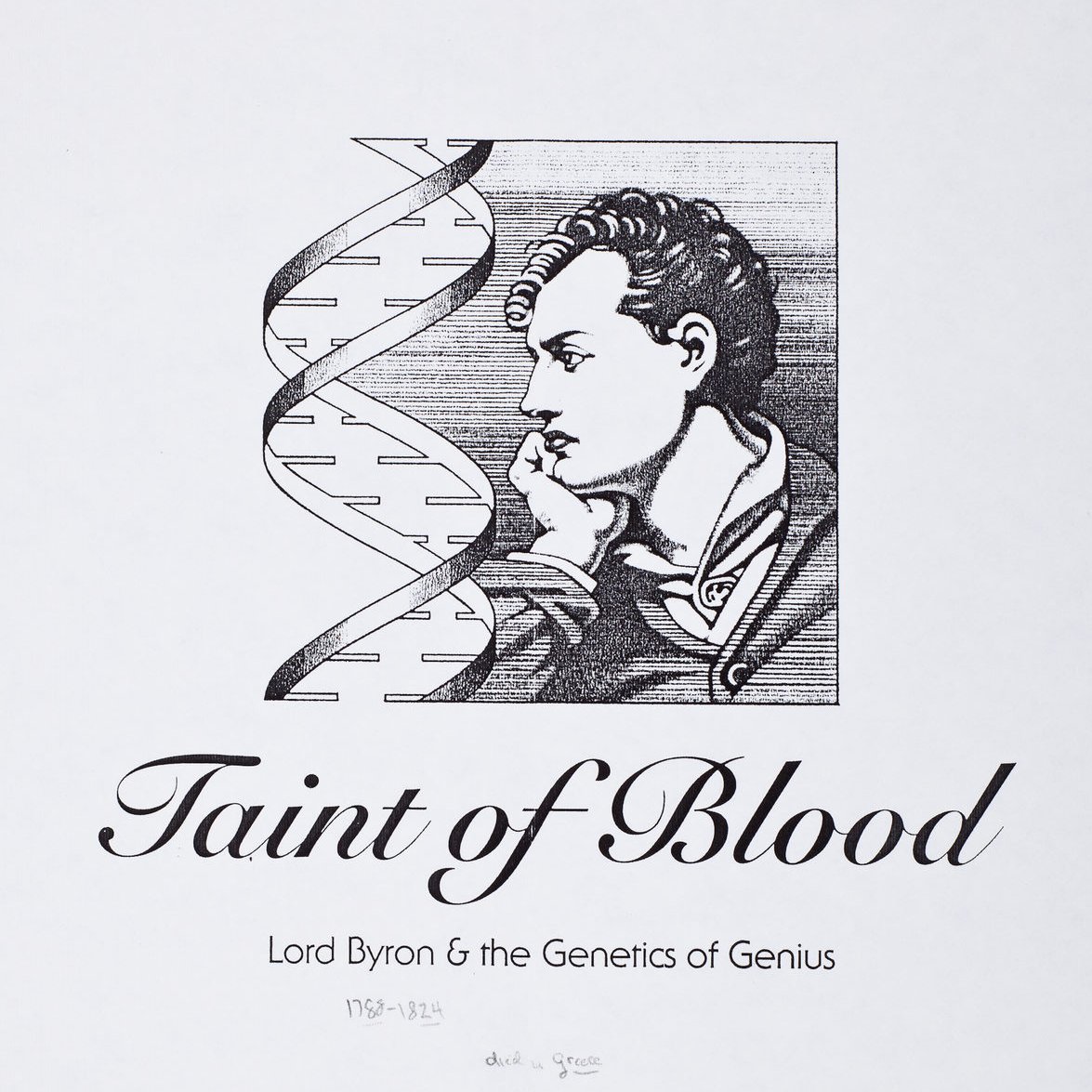
(Thirty years on they haven't found the genes, but that doesn't stop people from claiming mental illness is hereditary on the basis of flawed twin studies.)
Depending how you look at it, she's either been destigmatizing bipolar by posthumously diagnosing famous artists, or she's helped convince a lot of normal but passionate, sensitive, and suffering people that their moods are a hereditary problem they need to fix with drugs.
Take publisher Frances Lear, for example, diagnosed at 50 and on the boards of the Van Gogh and Byron programs. Her autobiography "described her childhood with an abusive adoptive mother, a father who killed himself and a stepfather who molested her."
washingtonpost.com/archive/local/…
washingtonpost.com/archive/local/…
Well that kind of upbringing would screw up anyone. For god's sake, why not talk about that and the way abuse ripples through people's lives, rather than all this emphasis on faulty genes — which no one can find — and the insistence there's some mysterious cause within the brain?
I'm too lazy to go through everyone involved with Jamison's advocacy right now, but another figure who turns up is Katharine Graham, the late owner of The Washington Post.
libgallery.cshl.edu/items/show/410…
libgallery.cshl.edu/items/show/410…
Graham was also on the boards of the Van Gogh and the planned Byron program, and she's thanked in the acknowledgements for An Unquiet Mind. I've even found record of Kay Jamison and James Watson attending dinner at the Graham's.
libgallery.cshl.edu/items/show/410…
libgallery.cshl.edu/items/show/385…
libgallery.cshl.edu/items/show/410…
libgallery.cshl.edu/items/show/385…
It still surprises me when mental health narratives brush against deep political intrigue. This time I found it in Kay Graham's connection to manic-depression: her husband Phil, who chaired The Washington Post before his death in '63. 

Story goes that Phil had the diagnosis. In 1963, he made a scene at a publisher's convention, was forcibly sedated and bundled off to Chestnut Lodge, a private psych hospital in Maryland, released, committed again, and finally shot himself at their farmhouse in Virginia.
Katharine Graham's 1997 autobiography cites Dr. Jamison on the nature of manic-depression, and laments that Chestnut Lodge didn't give him drugs or electroshock.
“I don’t believe you can reach people in the depths of depression or in the heights of mania through mere talking.”

“I don’t believe you can reach people in the depths of depression or in the heights of mania through mere talking.”
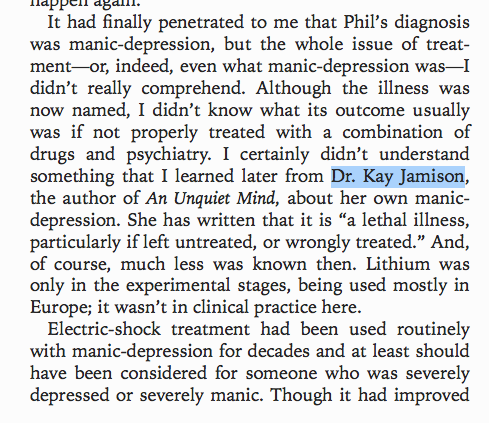
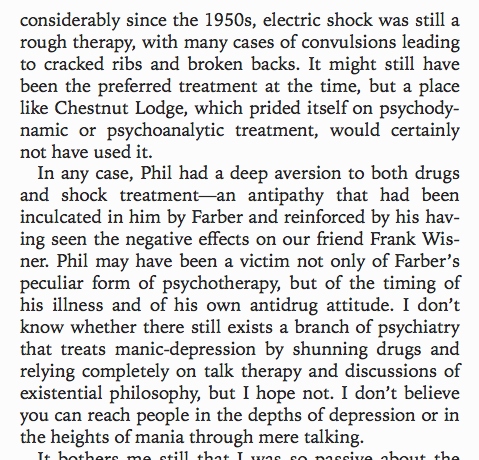
In 1995's An Unquiet Mind, Dr. Jamison insists that manic-depression "is an illness that is biological in its origins, yet one that feels psychological in the experience of it" — a view that favors somatic treatments over psychotherapy as well.
I'm a partisan for talking, however, and I'm convinced even the strangest behavior — on some level — often makes sense. The biological perspective appears to provide an explanation, but it renders people unintelligible, sometimes even to themselves.
(and I'd banish the electrodes to the same place we left the ice picks, but that's another discussion)
If possible, I'd like to try to understand Phil Graham and his life in human terms.
If possible, I'd like to try to understand Phil Graham and his life in human terms.
As WaPo's chairman, Phil was well connected in Washington, and it's alleged the CIA's Frank Wisner recruited Phil and his paper for Operation Mockingbird. (Wisner, curiously, had also been diagnosed as manic-depressive and turned a shotgun on himself two years after Phil.)
The year of his death, Phil had been planning to divorce Kay for his mistress, and twice in '63 he instructed lawyer Edward Bennett Williams to rewrite his will and reduce Kay's share of his estate.
Kay contested the will in probate. Williams testified that Phil hadn't been of sound mind at the time, and Katharine Graham secured her reign at the The Post.
Williams later threatened journalists who were looking into the will in the early '70s.
jacklimpert.com/2018/03/when-l…
Williams later threatened journalists who were looking into the will in the early '70s.
jacklimpert.com/2018/03/when-l…

Phil had also been a close associate of JFK, whose assassination came a few months after Phil's death. Spooky stuff all around. I dunno. There's nothing definitive, but plenty that makes one go "hmmm."
Lots more on the Grahams here:
Lots more on the Grahams here:
https://twitter.com/mindgomes/status/1164014610523021314
Next I want to look at Dr. Kay Jamison.
Ok, I've been putting this off because it all makes my head spin, but here goes.
Kay's brother, Dean Tecumseh Jamison, is currently an economist at UCSF and the University of Washington. He has ties to the World Bank, the WHO, and the Gates Foundation.
Kay's brother, Dean Tecumseh Jamison, is currently an economist at UCSF and the University of Washington. He has ties to the World Bank, the WHO, and the Gates Foundation.
https://twitter.com/mbneedham/status/1397786069672804354
Jamison's father, Lt. Colonel Marshall Verdine Jamison, was a meteorologist for the Air Force. After retiring from service, he appears to have done some work for the RAND Corporation. Something about using satellites for education in Brazil; I haven't looked closely.
Currently, Kay Redfield Jamison is at Johns Hopkins where she holds the post of Dalio Professor in Mood Disorders. That's Dalio as in Ray Dalio, the billionaire manager of the world's largest hedge fund, Bridgewater Associates.
professorships.jhu.edu/professorship/…
professorships.jhu.edu/professorship/…
Dalio's advocacy is apparently on account of his son Paul, who received a bipolar diagnosis after a 2004 psychotic episode. Paul Dalio had been in Los Angeles trying to make a career in the film industry, and after his recovery, he directed a film inspired by his experiences —
and also inspired by the book with which it shares a title: Kay Jamison's, Touched With Fire. I haven't seen the film, but it looks like Dalio's 2015 tale of a romance between two bipolar poets hews closely to the same ideas Jamison was spreading twenty years earlier. 

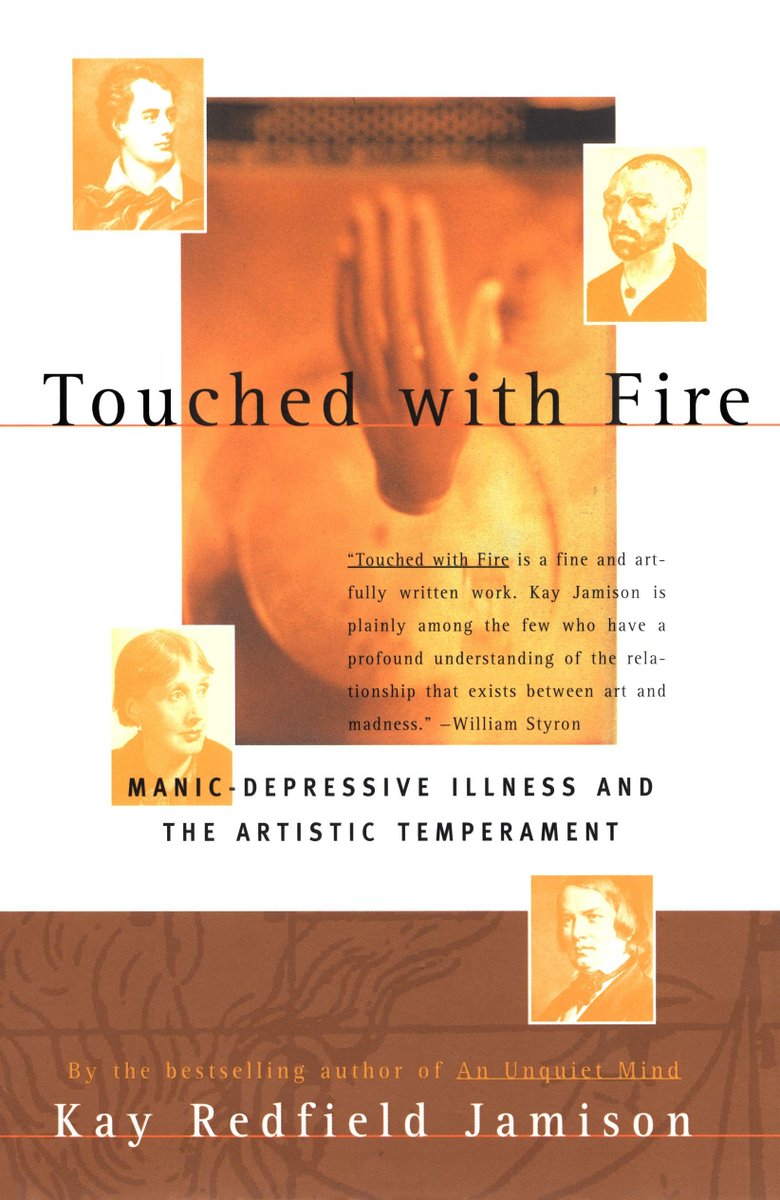
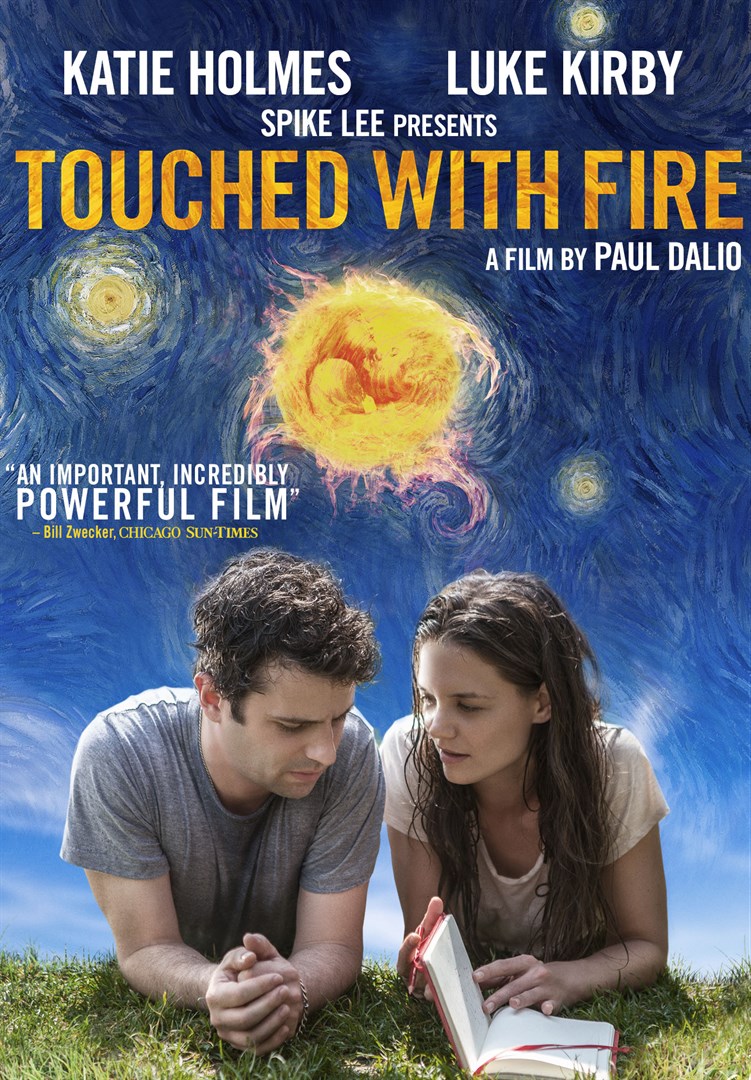
To wit, both Dr. Jamison and the film give an account of manic-depression as a brain disease that's linked with creativity, passed in genes, and properly treated with medication. Even the invocation of van Gogh as patron saint of the diagnosis is familiar.
nytimes.com/2016/02/12/mov…

nytimes.com/2016/02/12/mov…
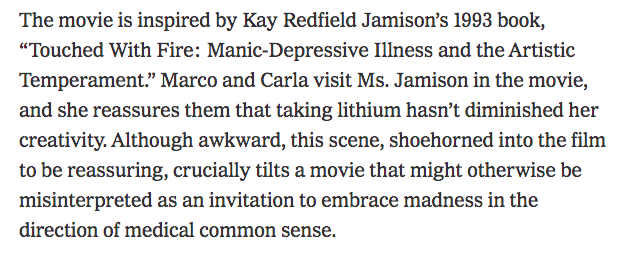

Jamison's work has precedents, of course. The trope that there's a relationship between madness and creativity is an old one, but the immediate precursor of Jamison's exploration of the idea is Nancy Andreasen's studies of writers at the Iowa Writers' Workshop.
(a bit of trivia: Kay Jamison's niece, Leslie Jamison, got an MFA from the Iowa Workshop in 2006.)
Kay Jamison's influence pervades popular depictions of manic-depression. The writers for Homeland used An Unquiet Mind as a reference.
thedailybeast.com/homeland-and-s…
thedailybeast.com/homeland-and-s…
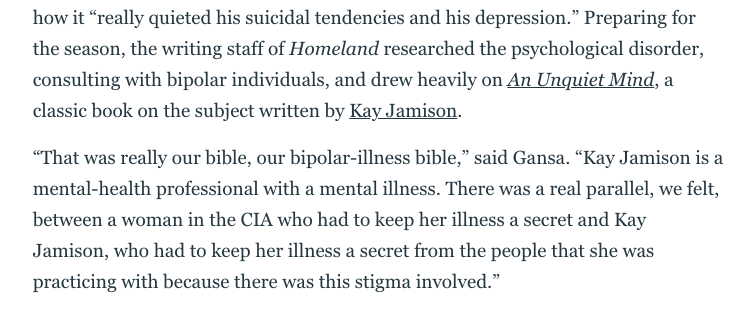
In 1996 actress Margot Kidder had a highly publicized breakdown in Los Angeles, followed by a blitz of articles and media appearances about her mental troubles. And who shows up in People's cover story to explain Kidder's diagnosis?
people.com/archive/cover-…

people.com/archive/cover-…
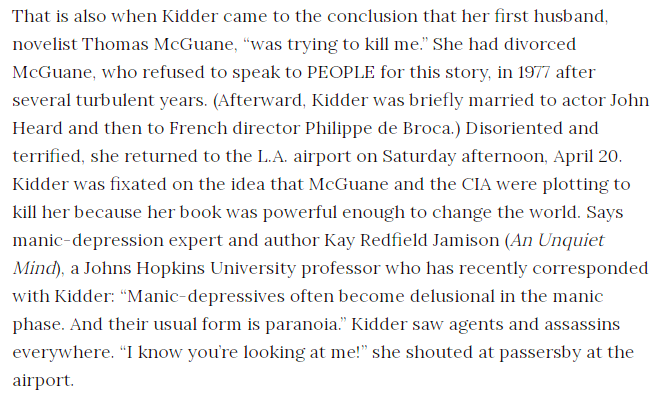
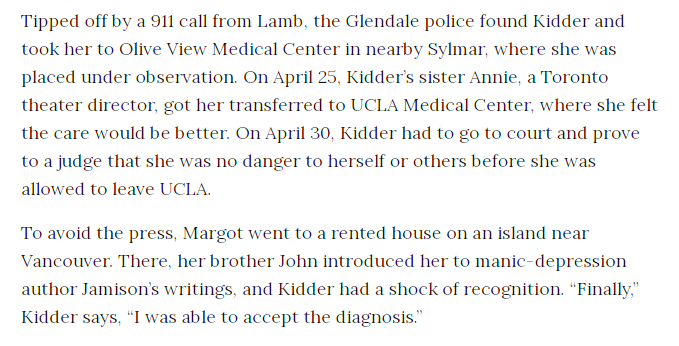
It strikes me that Jamison, who 'outed' herself as bipolar when it was unusual to do so, helped pave the way for ordinary people to identify publicly as having a problem with their brains — to see a diagnosis as a fundamental part of one's selfhood.
Without Jamison's writing and advocacy — along with that of others: Styron's Darkness Visible; Prozac Nation; Girl, Interrupted; and many more — would people put DSM categories in their dating profiles or in college applications? Would we understand ourselves in the same way?
It's this role in shaping the popular understanding of bipolar disorder, speaking and writing as both patient and expert, for which Jamison was given a MacArthur in 2001.
There's one last thing I want to look at. In 1974, three months after she was hired as an assistant professor in the UCLA Department of Psychiatry, Kay Jamison experienced the psychotic break that prompted her diagnosis. 

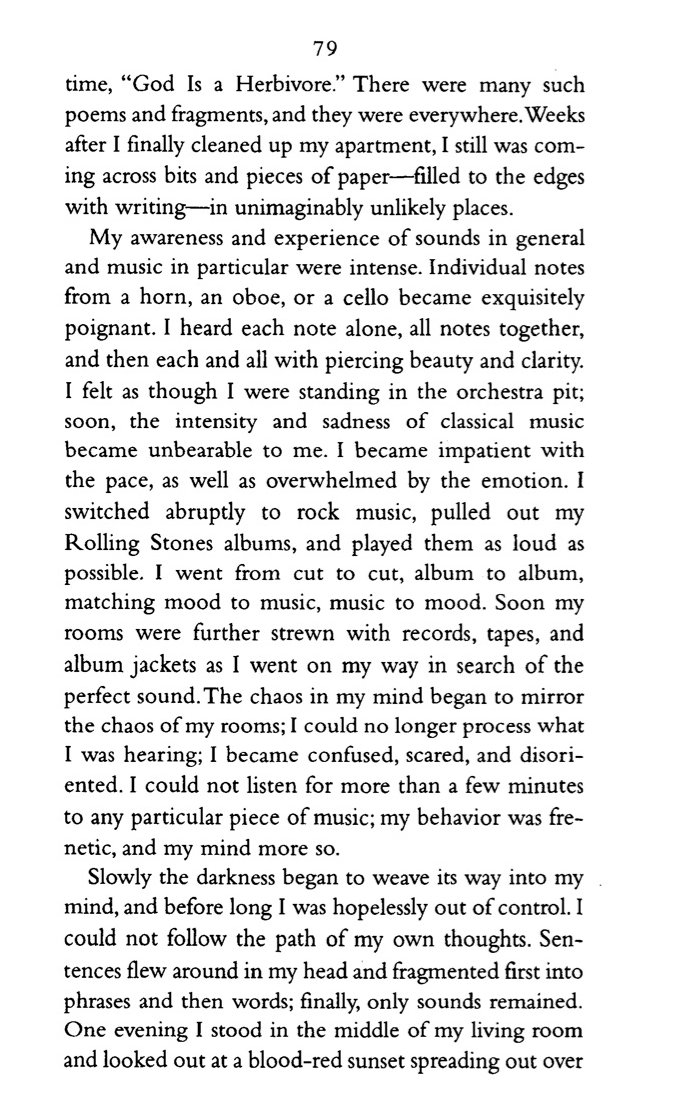
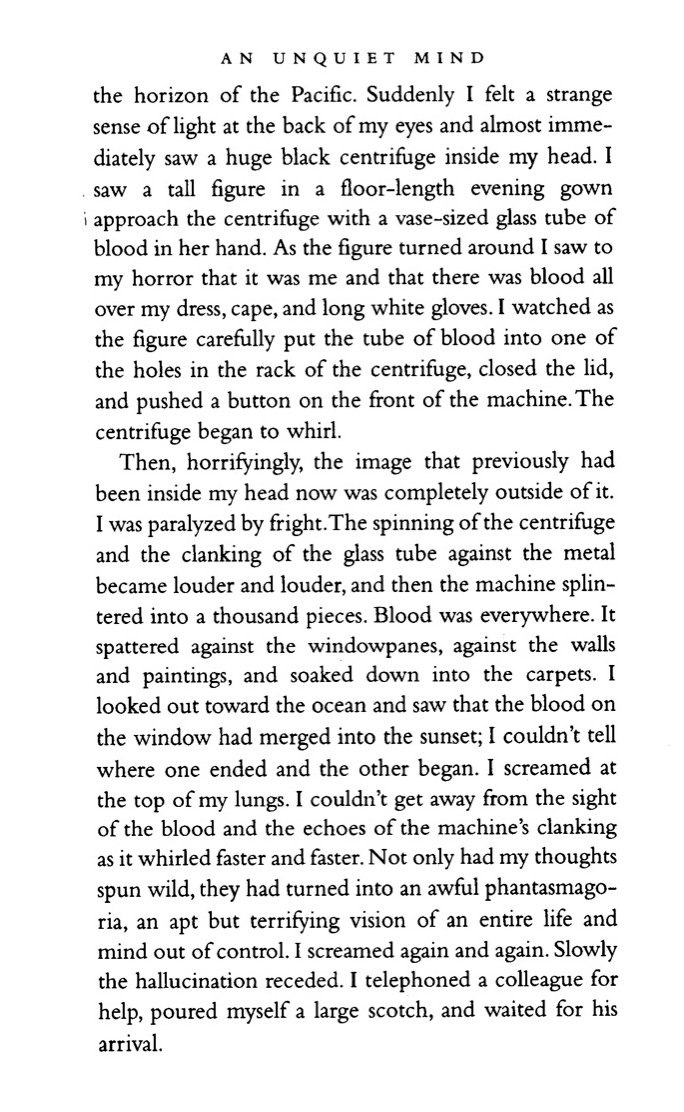
It was the kind of crisis that often ends careers and turns people into permanent patients, but Jamison received extraordinary support. In fact, the chairman of her department, Dr. Louis Jolyon West, encouraged her to make use of her experience. 

In talks she recounts that, "[Dr. West] put his arm around me and he said, 'hey kiddo, I understand you got a problem with your moods.' [...] 'look, just keep seeing your doctor, taking your medication. Learn from it, teach from it, write from it.'"
~33:30
~33:30
• • •
Missing some Tweet in this thread? You can try to
force a refresh

